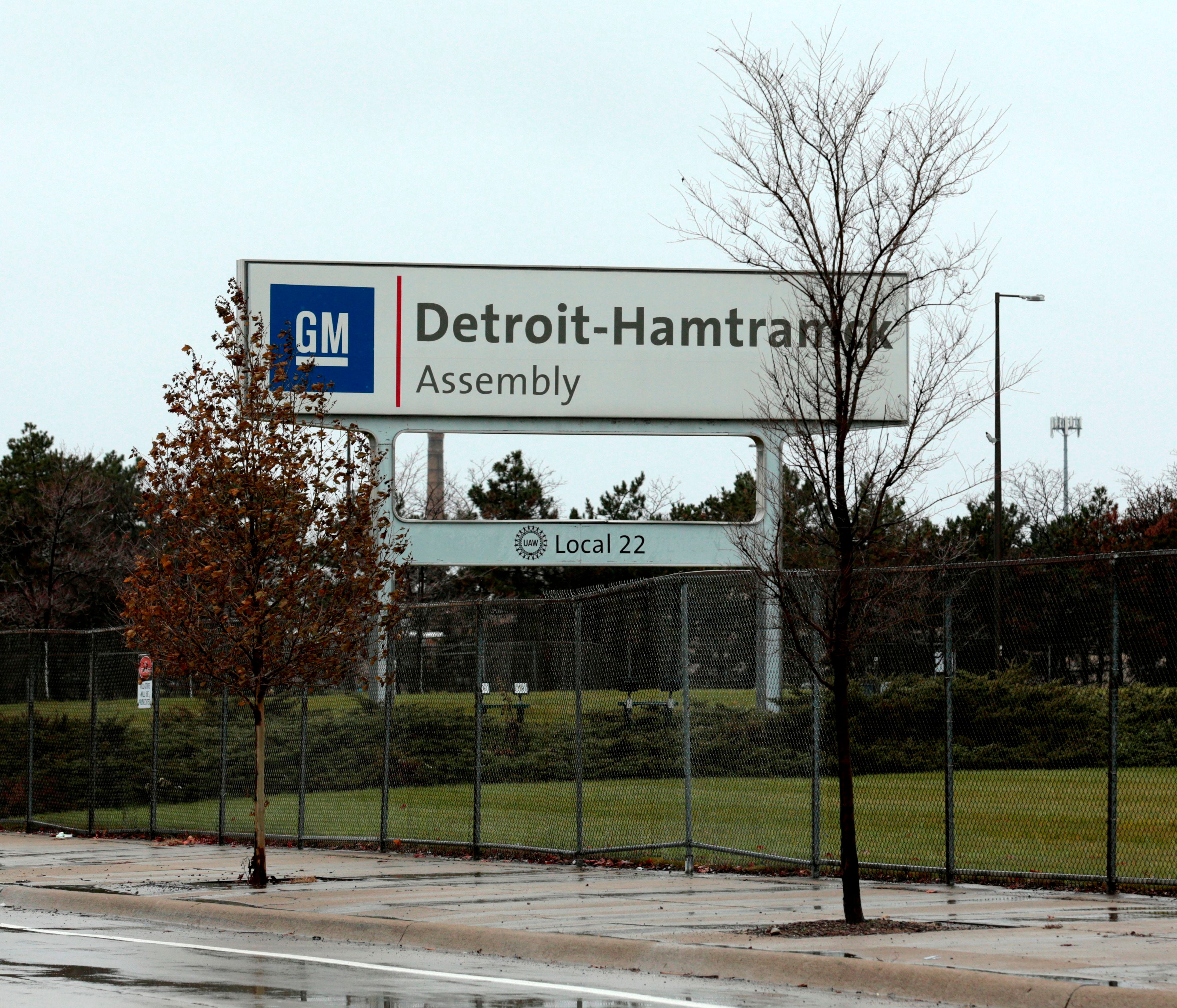Trump threatens 25% tariffs on imported cars
 Keith Laing
Keith Laing
Washington — President Donald Trump threatened a 25-percent tariff on cars imported to the United States as his fury continued unabated over General Motors Co.' s austerity plans that would idle four U.S. plants, cut 8,000 salaried employees and threaten the jobs of 3,300 hourly workers.
In an escalation of a prior threat to yank electric-car subsidies that are used by GM to make plug-in vehicles more attractive to auto buyers, Trump tweeted Wednesday: "The reason that the small truck business in the U.S. is such a go to favorite is that, for many years, Tariffs of 25% have been put on small trucks coming into our country. It is called the 'chicken tax' If we did that with cars coming in, many more cars would be built here....."
Trump continued in a subsequent tweet: "....and G.M. would not be closing their plants in Ohio, Michigan & Maryland. Get smart Congress. Also, the countries that send us cars have taken advantage of the U.S. for decades. The President has great power on this issue - Because of the G.M. event, it is being studied now!"
Trump also retweeted a tweet from a Twitter user who wrote: "If GM doesn't want to keep their jobs in the United States, they should pay back the $11.2 billion bailout that was funded by the American taxpayer."
GM declined to comment on Trump's latest broadsides, but the company noted it has repaid the nearly $50 billion in federal assistance that it received in the 2008 and 2009 auto bailouts, and since invested $22 billion in U.S. operations.
Trump is furious at GM for moving to idle plants that produced low-selling sedans because it undercuts his campaign appeals to voters in Midwestern states like Michigan and Ohio. Victories in those states were central to Trump's 2016 election and they are likely to be hotly contested again in 2020.
Under the federal law cited by Trump that's popularly known as the “chicken tax,” small imported trucks like pickups are subject to a 25-percent duty that was imposed in 1964 by former President Lyndon Johnson in response to tariffs by France and West Germany on U.S.-raised chickens.
Most other cars that come from countries not covered by the North American Free Trade Agreement currently face only 2.5 percent tariffs. The U.S. has most-favored nation status with 164 countries that are members of the World Trade Organization, which limits tariffs on most traded goods to that figure.
Trump has already imposed tariffs on foreign steel and aluminum under a section of federal law of a 1962 trade law that allows the president to apply levies if he determines a security threat exists.

GM said Monday it will cease production next year at its Detroit-Hamtramck and Warren Transmission plants in Michigan, at Lordstown Assembly in Ohio, at Oshawa Assembly in Ontario and at Baltimore Operations in Maryland. Work will stop next year at predetermined dates, but plants will not officially close. The future of those facilities will be determined during 2019 negotiations with the United Auto Workers union.
The company is planning to lay off nearly 6,000 salaried workers next year after a buyout program last month only had 2,250 takers, according to a memo sent to employees by CEO Mary Barra and obtained by The Detroit News. The salaried buyouts and the layoffs together will affect 8,000 North American employees and a number of global executives, none of whom are part of the senior leadership team.
Kristin Dziczek, vice president of industry, labor and economics at the Center for Automotive Research, which analyzes issues involving the auto industry, said there is a difference between the type of trucks the chicken tax is currently applied to and the crossover SUVs that dominate U.S. car sales.
"The rest of the world does not buy the type of pickup we do in the U.S.," she added in an interview with The Detroit News. "Slapping a 25 percent tariff on cars does not realign supply chains. It makes them more expensive."
Dziczek said Trump has the legal authority to impose the chicken-tax tariffs on cars under the WTO's General Agreement on Tariffs and Trade. But she said any changes would have to apply to all trading partners of the U.S., which would complicate recent agreements the Trump administration reached with Canada and Mexico in talks over a NAFTA overhaul.
Charlie Chesbrough, senior economist and senior director of industry insights for Cox Automotive, which provides marketing services for auto dealers and consumers, said the chicken tax plays in a big role in determining the higher price of pickup trucks compared to cars and crossover SUVs.
Chesbrough noted that U.S. automakers face less competition in the pickup sector than they do in other segments of the auto market due to tariffs, allowing them to charge higher prices for their trucks.
"A lot of folks point to the fact that pickup truck are so expensive," he said. "The chicken tax is part of the reason the costs are higher than they would otherwise be. They don't have much competition."
Chesbrough expressed skepticism that adding a stiff tariff on cars would prevent automakers from closing domestic plants that are used to build unprofitable small cars. Instead, he said, such a levy could result in higher prices for increasingly popular SUVs.
"I think what you end up seeing is less choice in the American market," he said. "Part of the reason your seeing the Detroit Three get out of cars is because they have such an enormous advantage in pickup trucks. He's trying to protect a car segment that people really aren't interested in."
klaing@detroitnews.com
(202) 662-8735
Twitter: @Keith_Laing